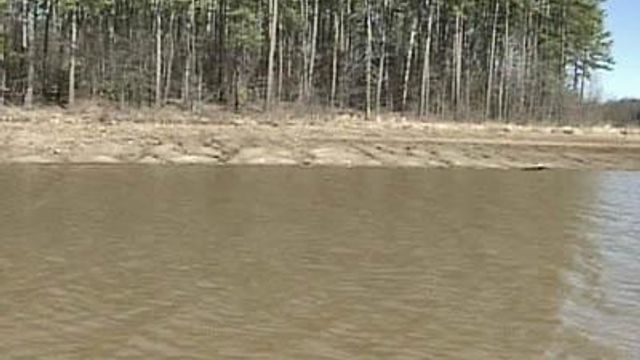Raleigh Eyes Easing Restrictions as Falls Lake Fills
Mayor Charles Meeker wants to give landscapers and others flexibility to operate under Raleigh's water restrictions.
Posted — UpdatedRains late Tuesday boosted Raleigh's available drinking water supply to at least 164 days – until mid-August – based on current consumption levels, Public Utilities Director Dale Crisp said.
Falls Lake, the city's primary reservoir, is now about 5½ feet below normal after hovering close to 8 feet below normal for the past month. Officials said they are hopeful another storm system forecast for late Friday will raise the lake even more.
The increased water supply is prompting Meeker to start putting together a proposal that would provide landscapers, power-washing contractors and swimming-pool operators more flexibility to operate under Stage 2 water restrictions.
The Stage 2 restrictions, which were imposed on Feb. 15, prevented people on the municipal water system from using drinking water for outdoor irrigation or power-washing and required car washes to be certified by the city to stay in operation.
Crisp has said that the restrictions, the toughest rules Raleigh has put in its regulatory arsenal thus far, have cut consumption by about 3 million gallons a day in recent weeks.
"Our real focus is to make sure restrictions are fair and equitable and everyone is participating in conservation," Meeker said. "The (Stage 2) restrictions will remain in place until lake levels are replenished (to) about 80 to 90 percent and the weather patterns have changed (to) where it looks like we're getting normal weather as opposed to extremely dry weather."
Meanwhile, Gov. Mike Easley on Thursday reiterated his call for water conservation, despite signs the drought was easing in the short term.
Thirty-nine North Carolina counties, including all of the Triangle, continue to experience exceptional drought conditions, the worst of five categories monitored by the state Drought Management Advisory Council. Another 32 counties are in extreme drought, 23 are in severe drought and six are in a moderate drought, according to a report released Thursday.
Two weeks ago, 64 counties were in exceptional drought conditions.
“People have to take water conservation more seriously,” Easley said in a statement. “The level of conservation now is not going to get the job done. More is needed.”
Forty-nine state government buildings have adopted water-saving measures that will conserve an estimated 1 million gallons a year, he said.
• Credits
Copyright 2024 by Capitol Broadcasting Company. All rights reserved. This material may not be published, broadcast, rewritten or redistributed.






